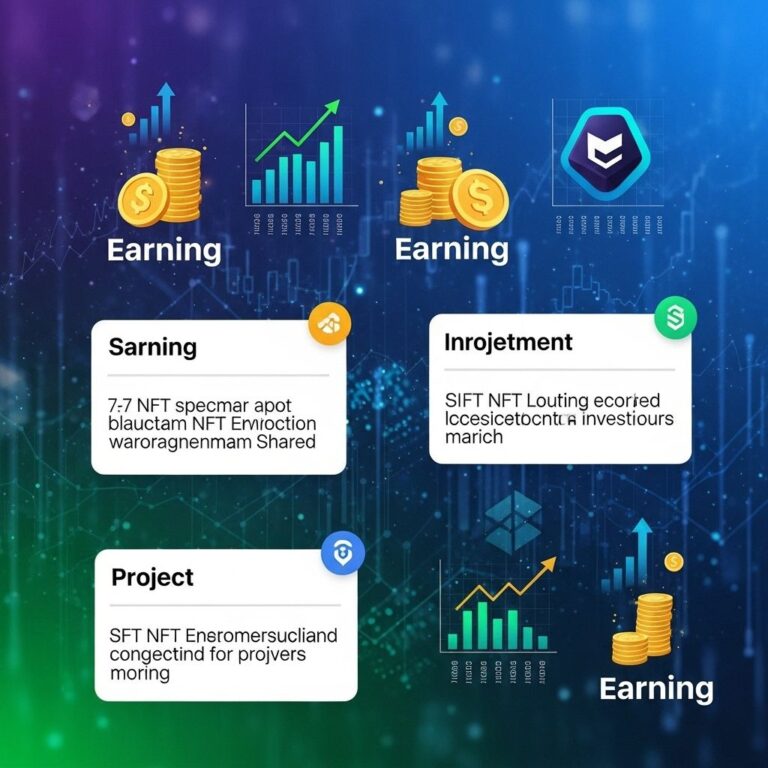In recent years, the allure of cryptocurrency has captivated millions around the globe. From Bitcoin’s meteoric rise to the emergence of countless altcoins, the digital currency landscape offers both incredible opportunities and substantial risks. Investing in crypto isn’t just about buying low and selling high; it requires a well-thought-out strategy, an understanding of market dynamics, and an awareness of potential pitfalls. This article will guide you through the essential steps to navigate the world of cryptocurrency investments like a seasoned expert.
Table of Contents
Understanding the Basics of Cryptocurrency
Before diving into the investment strategies, it is crucial to understand what cryptocurrency is and how it functions. Cryptocurrencies are digital or virtual currencies built on blockchain technology, which is a decentralized ledger that records all transactions across a network of computers.
Key Terms to Know
- Blockchain: A decentralized ledger technology that underpins most cryptocurrencies.
- Wallet: A digital tool that allows users to store and manage their cryptocurrencies.
- Exchange: A platform where you can buy, sell, or trade cryptocurrencies.
- Altcoin: Any cryptocurrency other than Bitcoin.
- Market Capitalization: The total value of a cryptocurrency, calculated by multiplying its current price by the total supply.
Setting Your Investment Goals
Before making any investments, it’s essential to define your goals. Are you looking for long-term growth, or are you interested in short-term gains? Here are a few considerations:
Types of Investment Strategies
- HODLing: Holding onto your investments for the long term, regardless of market fluctuations.
- Day Trading: Buying and selling cryptocurrencies within the same day to capitalize on short-term price movements.
- Dollar-Cost Averaging: Investing a fixed amount of money at regular intervals, regardless of the price.
- Value Investing: Identifying undervalued cryptocurrencies that you believe will grow over time.
Researching Cryptocurrencies
Every successful investment begins with thorough research. Here are the critical aspects to investigate:
Fundamental Analysis
This involves evaluating a cryptocurrency’s intrinsic value by examining factors such as:
- Technology: What technology underpins the cryptocurrency? Is it scalable and secure?
- Team: Who are the developers and advisors behind the project? Do they have a credible history?
- Community: What is the size and engagement level of the community? A strong community can be a sign of a healthy project.
Technical Analysis
Technical analysis entails analyzing price charts and trading volumes to predict future price movements. Some key tools and concepts include:
- Support and Resistance Levels: Price levels at which a cryptocurrency tends to stop and reverse direction.
- Moving Averages: Indicators that smooth out price data to identify trends over a specific period.
- RSI (Relative Strength Index): A momentum oscillator that measures the speed and change of price movements.
Choosing the Right Exchange
Selecting a reputable cryptocurrency exchange is vital for a successful investment experience. Consider the following factors:
Exchange Features
| Feature | Importance |
|---|---|
| Security | High priority, look for features like two-factor authentication and cold storage. |
| Fees | Understand the trading and withdrawal fees, as they can vary significantly. |
| User Experience | An intuitive interface can make a significant difference, especially for beginners. |
| Available Cryptocurrencies | Ensure that the exchange offers a wide selection of cryptocurrencies to choose from. |
| Customer Support | Good customer support can help resolve issues quickly when they arise. |
Diversifying Your Portfolio
Just like any other investment, diversification is key to managing risk in cryptocurrency. By spreading your investments across various assets, you can mitigate losses. Here are some strategies:
Types of Cryptocurrencies to Consider
- Established Coins: Bitcoin and Ethereum, known for their stability and widespread acceptance.
- Emerging Altcoins: New projects with innovative technology that have the potential for high returns.
- Stablecoins: Cryptocurrencies pegged to a stable asset, like the US dollar, to reduce volatility.
Managing Risks
Investing in cryptocurrencies comes with inherent risks. Here are some strategies to manage them:
Risk Management Techniques
- Set Stop-Loss Orders: Automatically sell a cryptocurrency if it drops to a certain price.
- Only Invest What You Can Afford to Lose: Given the volatile nature of crypto markets, never invest your essential savings.
- Stay Informed: Keep up with market news and trends to make informed decisions.
Tax Implications of Cryptocurrency Investments
Understanding tax implications is essential for any investor. Cryptocurrency is often treated as property for tax purposes, meaning:
- Capital gains tax may apply when you sell or trade cryptocurrencies.
- It’s important to keep meticulous records of all transactions.
- Consult a tax professional for guidance tailored to your situation.
Conclusion
Investing in cryptocurrency like a pro requires a combination of research, strategy, and risk management. By understanding the fundamental and technical aspects of the market, setting clear investment goals, and diversifying your portfolio, you can position yourself for success in this exciting and dynamic investment landscape. Remember that patience and continuous learning are key to thriving in the world of cryptocurrencies.
FAQ
What are the best practices for investing in cryptocurrency?
To invest in cryptocurrency like a pro, start by researching different cryptocurrencies, diversifying your portfolio, and only investing what you can afford to lose. Additionally, consider using secure wallets and stay updated on market trends.
How can I minimize risks when investing in crypto?
Minimize risks by conducting thorough research, avoiding FOMO (fear of missing out), setting clear investment goals, and implementing stop-loss orders to protect your investments.
What should I know about crypto exchanges?
When choosing a crypto exchange, look for security features, user reviews, transaction fees, and the variety of cryptocurrencies offered. Ensure the exchange has a good reputation and complies with regulatory standards.
Is it better to invest in established cryptocurrencies or new altcoins?
Investing in established cryptocurrencies can provide more stability, while new altcoins may offer higher risk and potential rewards. A balanced approach that includes both can be beneficial.
How do I keep my cryptocurrency investments secure?
To keep your investments secure, use hardware wallets for long-term storage, enable two-factor authentication on exchanges, and be cautious of phishing scams and suspicious links.









